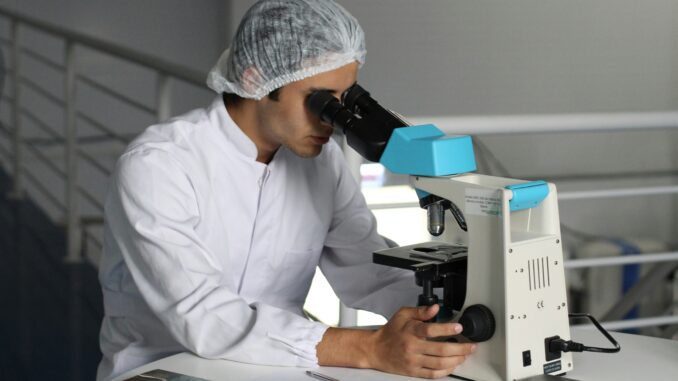
Choosing a career path can be a major decision in life. For those with an innate sense of curiosity, coupled with a passion to contribute meaningfully to the field of healthcare, medical laboratory science offers an intriguing possibility. In this article, we peel back the layers to explore the fascinating profession of lab scientists.
The Fascinating Realm of Medical Laboratory Science
Medical laboratory science represents an integral aspect of healthcare that operates behind the scenes. It involves the precise analysis of patient samples like blood and tissues to detect diseases and assess their treatment progress. The field’s complexity and importance are often overshadowed by care frontliners like doctors and nurses. They employ microscopes, chemistry analyzers, and other innovative technological tools to decipher the mystery inside individual cells, fulfilling a critical role in disease diagnosis, therapy monitoring, and even prevention.
Aspiring for a career in this exciting realm involves a passion for life sciences and a keen eye for detail. So, what specific skills does one need, and how can one achieve the master medical laboratory science degree? With a master’s degree, you are equipped with the knowledge and skills to conduct in-depth scientific investigations and contribute to cutting-edge advancements in medical laboratory science. You can work on developing new diagnostic tests, analyzing new technologies, and improving laboratory processes to enhance patient care and outcomes.
Before applying for college, you’ll want to invest in admission counseling. A college admissions counselor can serve as your guiding hand throughout the application process, allowing you to navigate the various options available. They have extensive knowledge of different colleges and universities and can provide you with valuable insights regarding the programs that align with your career goals. Whether you’re looking for a particular specialty within medical laboratory science or specific criteria for accreditation, a counselor can help you find the programs that meet your needs.
Essential Skills Required for a Career in Medical Laboratory Science
Critical thinking, problem-solving aptitude, and a sound understanding of life sciences embody the fundamental prerequisites for this career. However, technical skills alone can’t suffice. Medical lab scientists need to be detail-oriented to avoid any diagnostic error that can drastically impact patient care. Given the intricacy and volume of work, an ability to work under pressure is a boon. From managing multiple tests accurately and maintaining quality assessment procedures to keeping meticulous records, lab scientists juggle numerous formidable tasks simultaneously.
Strong interpersonal and communication skills are equally imperative. Despite operating largely behind the scenes, medical lab scientists frequently interact with healthcare professionals, explaining complex test results or clarifying procedures. A knack for conveying intricate information clearly can significantly enhance the efficacy of patient treatment. An unwavering ethical stance is crucial. Confidentiality in patient information and honesty in record-keeping and reporting results underline the professional integrity of a lab scientist, reinforcing the faith of patients and medical professionals in diagnostics.
Exciting Career Opportunities in Medical Laboratory Science
The field of medical laboratory science spawns a broad array of career opportunities. From hospitals and private laboratories to pharmaceutical companies, various healthcare settings employ lab scientists. Based on their expertise, lab scientists could specialize in different areas, such as hematology, bacteriology, cytotechnology, or immunology. These specialized roles allow lab scientists to delve into distinct aspects of diagnostics, each presenting a unique set of challenges and learning curves.
Entry-level roles can evolve into leadership positions, as their experience and proficiency increase. You can expect an above-average salary in any role. Many medical laboratory scientists transition into managerial roles, supervising operations, ensuring quality control, and implementing safety protocols in laboratories. Beyond a conventional career path, experienced medical lab scientists could ascend to teaching and research roles, contribute to novel diagnostic methods, or apply their expertise in health consultancy or bioinformatics roles.
As you can see, a career in medical laboratory science promises a journey bursting with learning, innovation, and fulfillment. From the mundane to the thrilling, the path comes wrapped with a sense of purpose and achievement that revolves around improving healthcare every day. Follow our advice and you’ll be well on your way to your dream job in the field.
